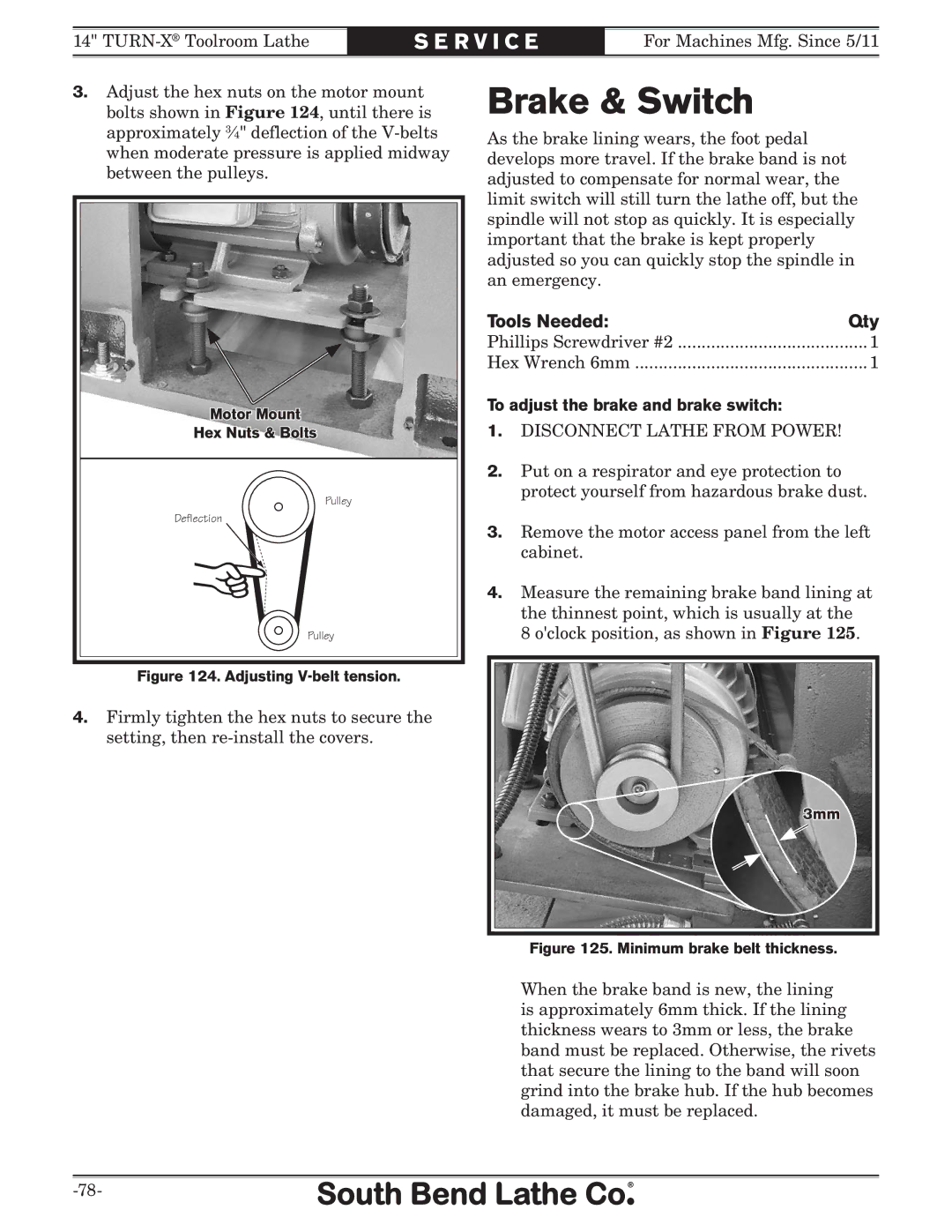
14" | S E R V I C E | For Machines Mfg. Since 5/11 |
|
|
|
3.Adjust the hex nuts on the motor mount bolts shown in Figure 124, until there is approximately 3⁄4" deflection of the
Motor Mount
Hex Nuts & Bolts
Pulley
Deflection
Pulley
Figure 124. Adjusting V-belt tension.
4.Firmly tighten the hex nuts to secure the setting, then
Brake & Switch
As the brake lining wears, the foot pedal develops more travel. If the brake band is not adjusted to compensate for normal wear, the limit switch will still turn the lathe off, but the spindle will not stop as quickly. It is especially important that the brake is kept properly adjusted so you can quickly stop the spindle in an emergency.
Tools Needed: | Qty |
Phillips Screwdriver #2 | .........................................1 |
Hex Wrench 6mm | 1 |
To adjust the brake and brake switch:
1.DISCONNECT LATHE FROM POWER!
2.Put on a respirator and eye protection to protect yourself from hazardous brake dust.
3.Remove the motor access panel from the left cabinet.
4.Measure the remaining brake band lining at the thinnest point, which is usually at the 8 o'clock position, as shown in Figure 125.
3mm
Figure 125. Minimum brake belt thickness.
When the brake band is new, the lining is approximately 6mm thick. If the lining thickness wears to 3mm or less, the brake band must be replaced. Otherwise, the rivets that secure the lining to the band will soon grind into the brake hub. If the hub becomes damaged, it must be replaced.
